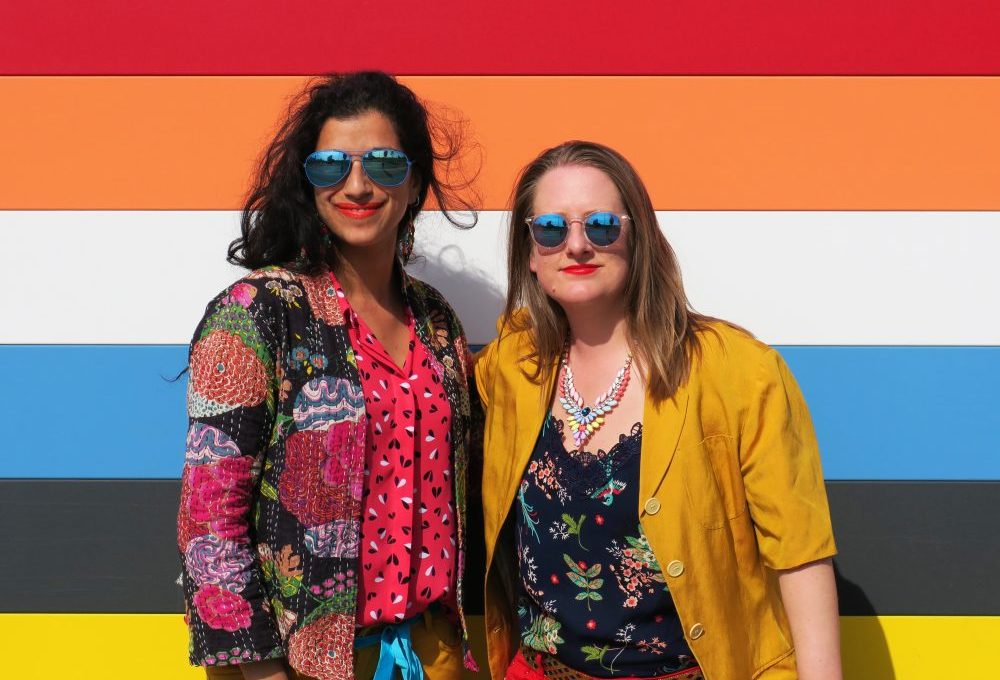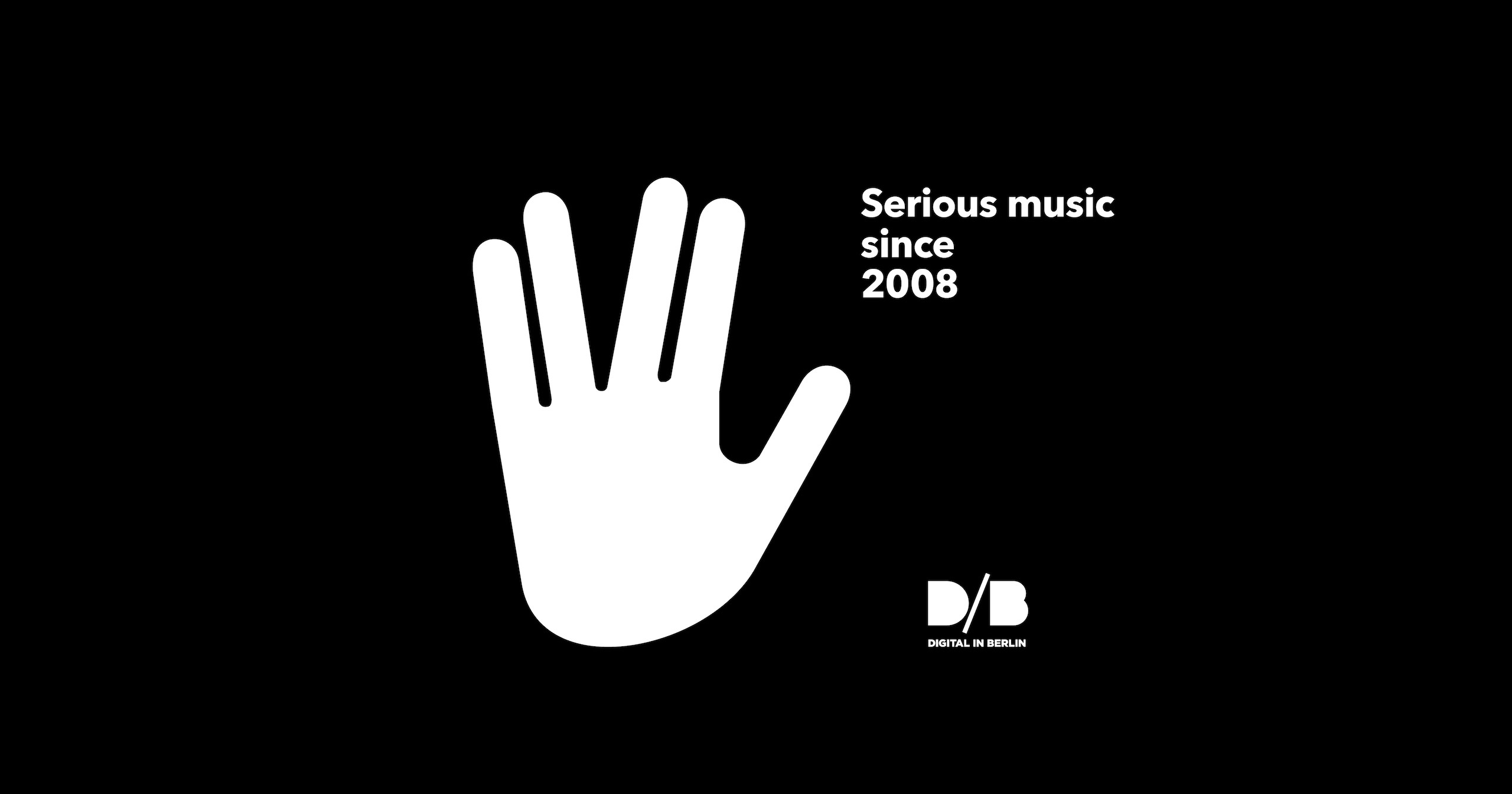Late Nights In Squat Bars are Shanti Suki and Dafne Della Dafne. They started their Berlin-based indytronic performance duo in 2008, singing feminist, anti-racist electro pop songs throughout Germany and Europe. Their last studio album Clamp Down was released in 2015. Since 2013 they have been artistic directors of music and performance festivals (Restriction Restraint Rebirth 2013, Authorized Access 2014) as well as creators of sound and visual installations as part of 48 Hours Neukölln (VoicedOver 2015, For Sale 2016, Hidden Stories Neukölln 2017). Shanti Suki and Dafne Della Dafne work consistently and playfully with the themes of privilege, cultural commodification and appropriation, feminisms and postcolonial criticisms and decolonisation. They both produce their own monthly radio shows for Freies Radio Berlin 88.4 FM.
FACTS:
1: Of the 46 actual titles listed in the recommended prior reading list for MA Sound Art at Berlin University of Arts, 4 are co-authored by women* and 4 are authored by women*.
2: According to an ex-employee, only 7% of Ableton users in 2011 were female*
3: In 1997, the gender pay gap in Germany was 21%. In 2017, the gender pay gap in Germany was 21%.
QUESTIONS:
1. What is the biggest inspiration for your music?
We were making music in two separate continents for about 10 years before we found each other in Berlin, so our influences include rock, trip hop, drum and bass, r n b and post-punk. This meshed really nicely as we started making music together – with Late Nights In Squat Bars project taking a lot of influence from electronic, electro pop, rock and hip hop female artists – Björk, M.I.A, Peaches, Fever Ray, PJ Harvey, FKA Twigs, Grace Jones. But aside from the musical inspiration, we are heavily influenced by our everyday lives in Berlin, with all it’s ups and downs.
2. How and when did you get into making music?
We met through a teaching job and would go to each other’s solo gigs long before we even thought about making music together. Then as part of our job we found ourselves together in a room full of 15 kids doing a songwriting workshop and something just clicked – we spent the afternoon with lyrics, beats and dance routines and afterwards decided to keep things going, but without the kids!
3. What are 5 of your favourite albums of all time?
I think ‘of all time’ will always change, but these mean a lot to us:
Björk – Homogenic
M.I.A – Kala
PJ Harvey – To Bring You My Love
Neneh Cherry – Raw Like Sushi
Peaches – Fatherfucker
4. What do you associate with Berlin?
Musical freedom and cultural exploration – with all its pros and cons
5. What’s your favourite place in your town?
We really like Das Kapital on Karl Marx Platz in Neukölln. It’s a genuinely open and friendly place with no elitist attitude. It hosts talks and presentations from local artists and people passing through and it’s amazing to see and experience the connections between us all.
6. If there was no music in the world, what would you do instead?
Move somewhere sunny… maybe even become another kind of artist – impossible not to express ourselves creatively!
7. What was the last record/music you bought?
Haha, well the process of buying physical records and music has of course changed so much over the last few years. All music lovers pay for things like spotify, but we know that’s not quite the best deal for artists. These days we tend to buy records and albums from other artists in our circles, supporting them at live gigs. In this way, buying records and music takes on a new meaning – almost a form of resistance against streams and youtube!
8. Who would you most like to collaborate with?
Some of the more obscure electronic artists like Val Inc (Haiti/New York) or the other extreme, some one more melodic and poppy like Dorit Chrysler.
9. What was your best gig (as performer or spectator)?
Last year we saw Alsarah and the Nubatones. She is an amazing performer and songwriter and did a short album with Debruit in 2013 – we’ve had the album on repeat in this recent hot weather…
10. How important is technology to your creative process?
Technology – in its various forms – is essential to our creative process. We compose beats with our laptops, synths and DAWs and record and transfer data constantly. It’s a wonder we ever wrote with pen and paper and acoustic guitars as early teens. With Hearing Now, the sound installation, we have revisited older forms of technology like cd players and tapes – it’s interesting to see how we did things back then!
11. Do you have siblings and how do they feel about your career/art?
We both have older brothers who we are sure are out biggest fans!
Late Nights in Squat Bars presents Hearing Now, an exhibition of newly created sound works inspired by research into female* sound artists and musicians active in Berlin in the 1980s and 1990s. We were curious to see how feminisms impacted their work. The fact that their existence in these male-dominated fields is in itself a form of feminism. We looked into Berlin-based sound artists, musicians and DJs and asked: How did they work? What feminist issues of today were non-existent then, and what still remains of their fights and endeavours?
The sound pieces include aspects of song, soundscape, radio and recorded interviews, that result from this questioning. The exhibition is accompanied by four events which broaden its themes, forms and content, including intersectional approaches to feminisms and knowledge production.
Hearing Now | 7th – 28th June 2018 | O.T. Projektraum | Weichselstr 55 | 12045 Berlin
photo by Helin Bereket

